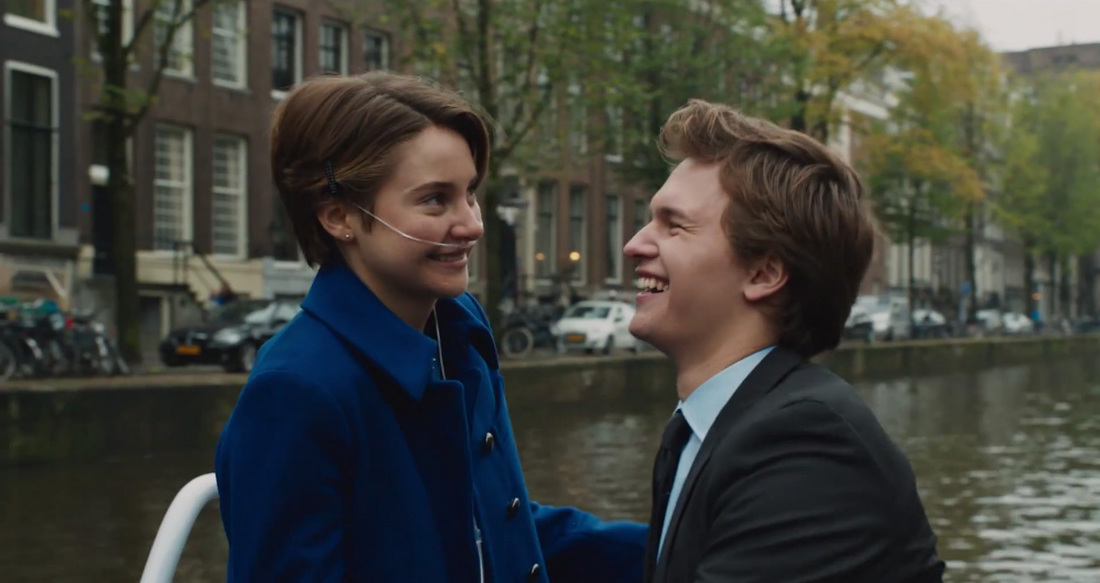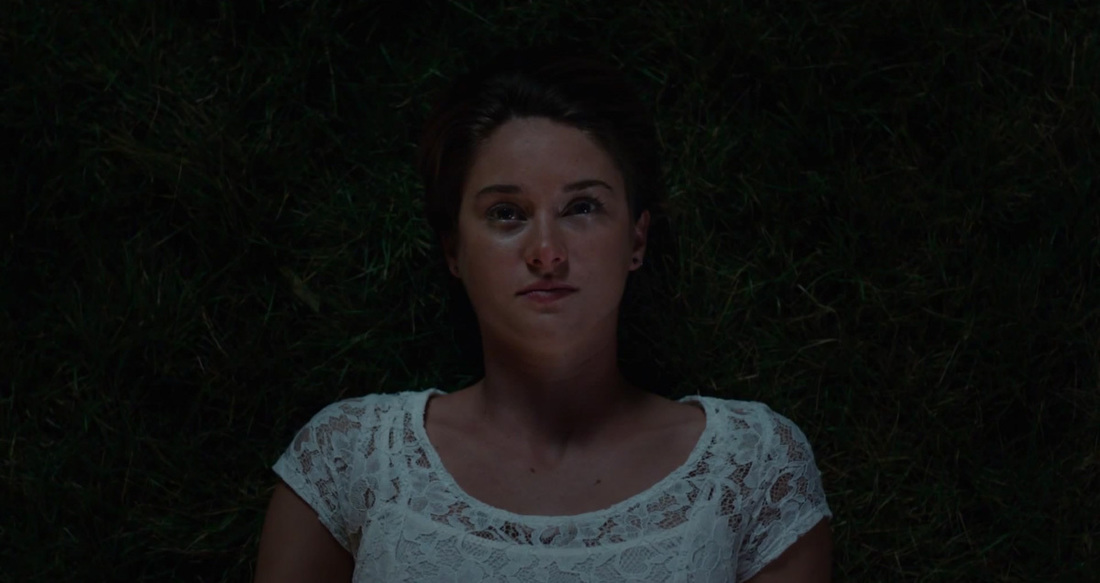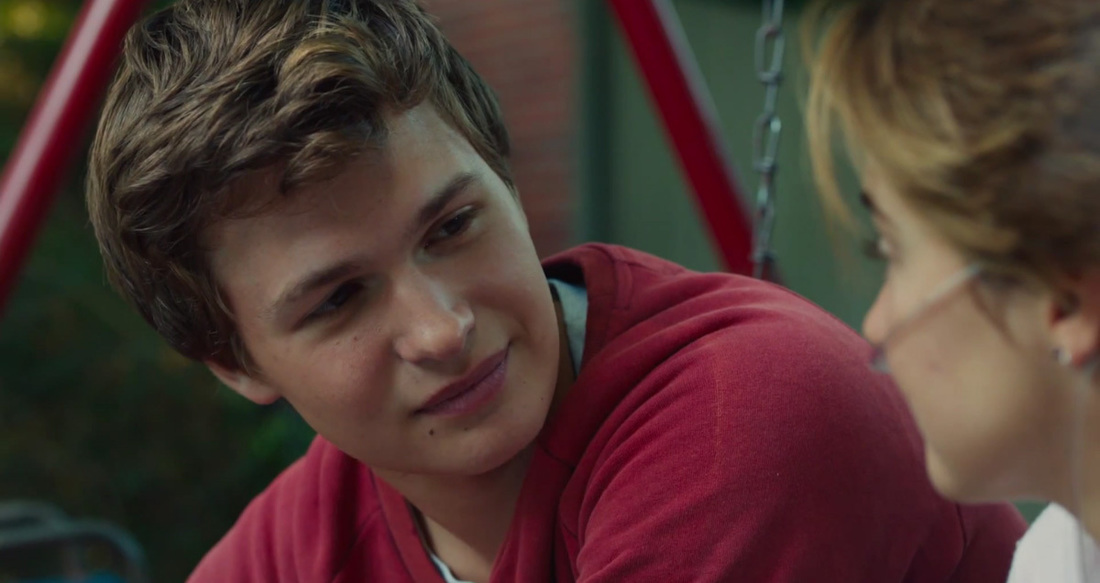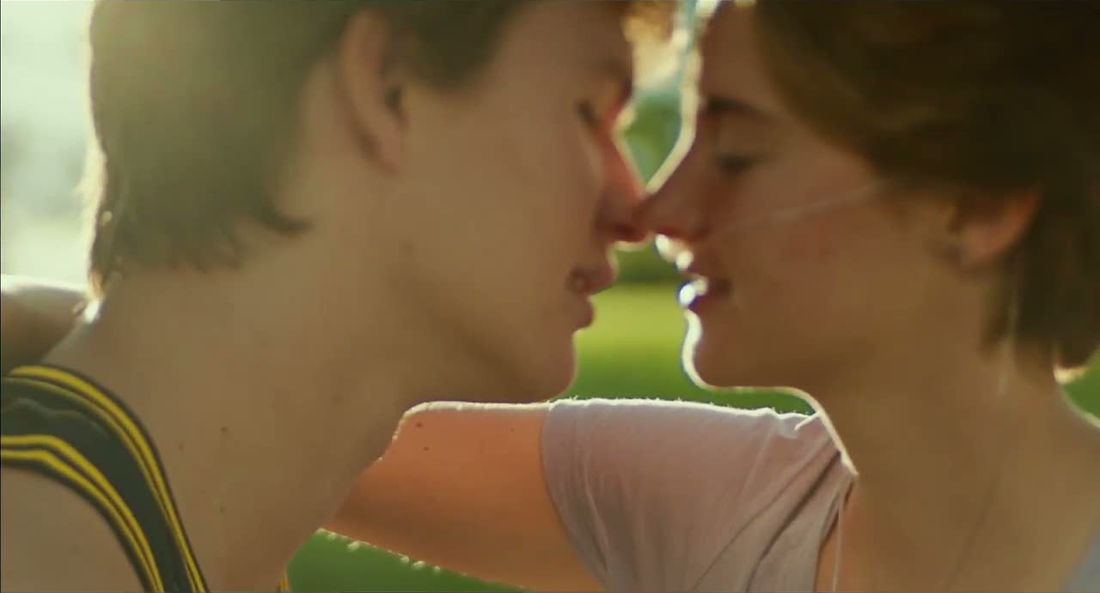Based on John Green’s popular young adult novel, The Fault in Our Stars is a film that is profoundly beautiful, eloquent and heartfelt. It tells of an extraordinary love between two unforgettable characters who are brought together by similarly ill-fated circumstances. Hazel Grace Lancaster and Augustus Waters are both victims of cancer. Although they do their best to hide it, these two young adults are each afraid of their ominous and unstable futures. They’re just trying to live purposeful lives and experience life like normal teenagers, but the looming threat of an untimely death impedes that desire. However, for a film filled with so much uncertainty, I can fortunately say that there is little doubt that The Fault in Our Stars is one of the great love stories of our time.
On the surface, it’s easy to dismiss The Fault in Our Stars as being a sappy teenage love affair. I’ll confess that I went into the theater expecting to be fully surrounded by crying teenage girls, while I would be quietly laughing to myself at their heartache. What I surely didn’t anticipate, however, was to be so deeply drawn into the film. Even more surprising is the fact that The Fault in Our Stars has actually turned out to be my favorite movie of the year so far. This is a film that is sincerely heartfelt and unflinchingly genuine. It brings truth to the romantic fantasies we have, and teaches us that we can’t let the fear of possible heartache hold us back from the endless potential of love.
Make no mistake about it, The Fault in Our Stars is a tear-jerker. It’s difficult to watch these lovable characters endure such unjustifiable hardship. Hazel and Augustus are each forced to face a formidable fate that they shouldn’t have to. I really felt a strong attachment to both of them, and found them to be remarkably identifiable. This connection makes it all the more unsettling when their situations turn dire. The reason that The Fault in Our Stars manages to be so effective is because of its authenticity and accessibility. The characters are not only admirable, but relatable. They’re not simply reduced to being unfortunate young cancer patients that we’re meant to feel sorry for. While of course we can sympathize with their condition, it is their compassion and the content of their characters that make them so compelling.
While the film features its fair share of tragedy, I should make it clear that it’s not heart-wrenchingly malicious in the way it deals with its ensuing sadness. This is not a film that is deliberately trying to make anyone feel bad. It is merely being honest in its depiction of the unfairness that often exists in life. While you very well might cry when watching the film, it’s not entirely depressing and hopeless. In fact, I would argue that The Fault in Our Stars is more pleasant than painful. The sadness it makes you feel ends up all being worthwhile because of the joyous, unforgettable memories the movie creates along the way. This is a film that will stay with you long after seeing it. To answer the question you’re all wondering: no, the movie didn’t make me cry. Though my lack of tears is not a particularly good indicator of the emotional quality of the film. I don’t really allow myself to cry during movies, but I certainly came close, and it undeniably left me deeply touched and forever grateful that I watched it.
Being that this is a romance, I must warn you that this isn’t a movie for everyone. Truth be told, I’m a sucker for a good romance, but I’m aware not everyone has the patience for these kind of movies. The Fault in Our Stars is a slow-burning journey that takes its time to relish in the moments. It does this skillfully, maintaining a steady, balanced pace while building up to a powerful climax. Some may find the film to be a little too cutesy, but I think anyone who approaches it with an open-mind will find that it’s legitimately a really great film. My only real criticism of the movie involves the awkward return of a particular character towards the end of the movie. It makes for a rather unwelcome and perplexing intrusion, although it does at least help to set up the film’s wonderful ending.
John Green’s story is refreshing, witty, and modern. It is not only insightful in its depiction of love and life, but also offers an amazing attention to detail. It nails the feelings of love, and perfectly captures the life of being a teenager. The characters created by Green truly come to life in this film. Divergent star Shailene Woodley shines as Hazel, a young woman suffering from terminal thyroid cancer. Additionally, Ansel Elgort is incredibly charming as Augustus, a high school basketball star whose career ended short when cancer turned him into an amputee. The two of them are a perfect complementary match. Laura Dern also puts in a commendable performance as Hazel’s mom, a selfless, loving parent and companion. The film’s soundtrack is sensational. It’s appropriately fitting and delightful, featuring great work by artists such as Ed Sheeran, Birdy, and Ray LaMontagne. Every aspect of the movie comes together to produce a thoroughly poignant and relevant package.
The Fault in Our Stars is a film that speaks to our generation. It stares boldly into our fears of the eminent death that haunts us all, and makes no attempt to glamorize it. Even though it’s about a pair of teenagers, it’s not afraid to deal with mature content. It’s actually all the more engrossing and troubling because these two characters are young. They’re already facing a pivotal time in their lives and are learning to experience the world on their own accord, and yet their journeys are plagued by the callous complications of cancer. Their age gives the film a stronger emotional impact, emphasizing the preciousness of life and the importance of living it to the fullest. The Fault in Our Stars is a smart and stimulating movie, and just like its star characters, it is wholly worthy of remembrance.






 RSS Feed
RSS Feed
